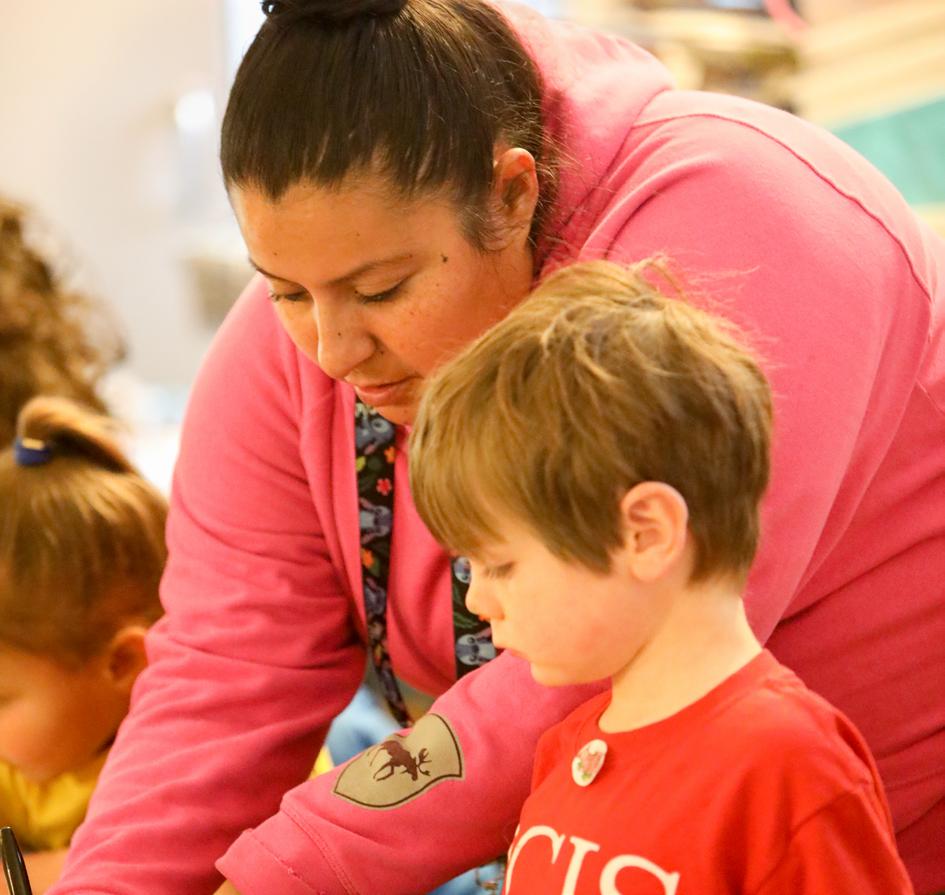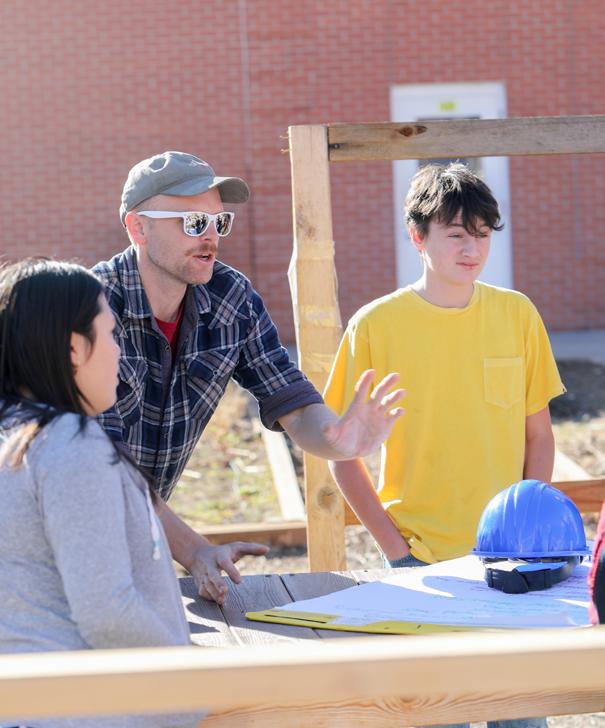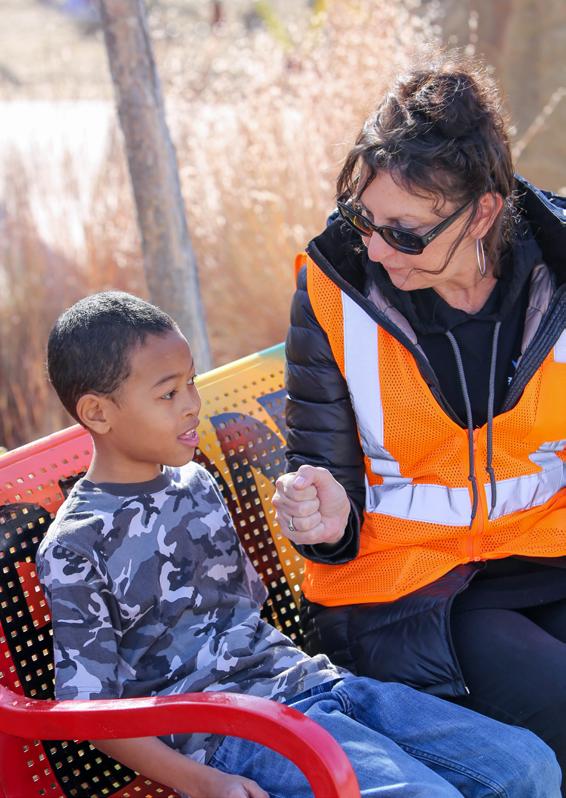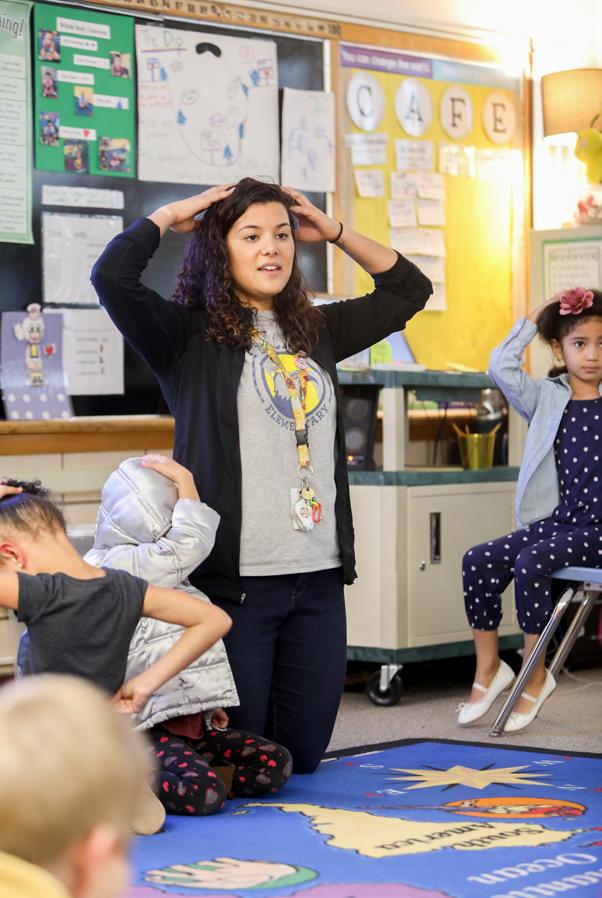Denver Public Schools








Introduction
Financial Year 22 (FY22) Environment and Social Impact
Financial Year 22 (FY22) Financial Impact
Budget
Climate Action
Energy
Gardens
Waste
Transportation
Water
Ongoing Activities
Meet the Team
DPS students are experiencing the climate crisis through devastating wildfires, some of the world’s worst air quality, shortened winter seasons, and climate anxiety. We wrote this report to share our practices toward a liveable future, and we are acting with urgency for the students who so bravely stood up for their future and got a climate action policy adopted by the DPS Board of Education.
With the support of so many stakeholders within DPS and in the community, we have great work happening across our district and look forward to continuing to share these stories. We want to give a special thank you to every collaborator, partner, and funding source that made these accomplishments possible.
We believe our future is bright and full of innovative thinking, and we are pushing ourselves to be national leaders in sustainability through environmental protection, economic prosperity, and social development. This is just the beginning of our action, and we hope these results will inspire you to join us!
LeeAnn Kittle | Director of Sustainability
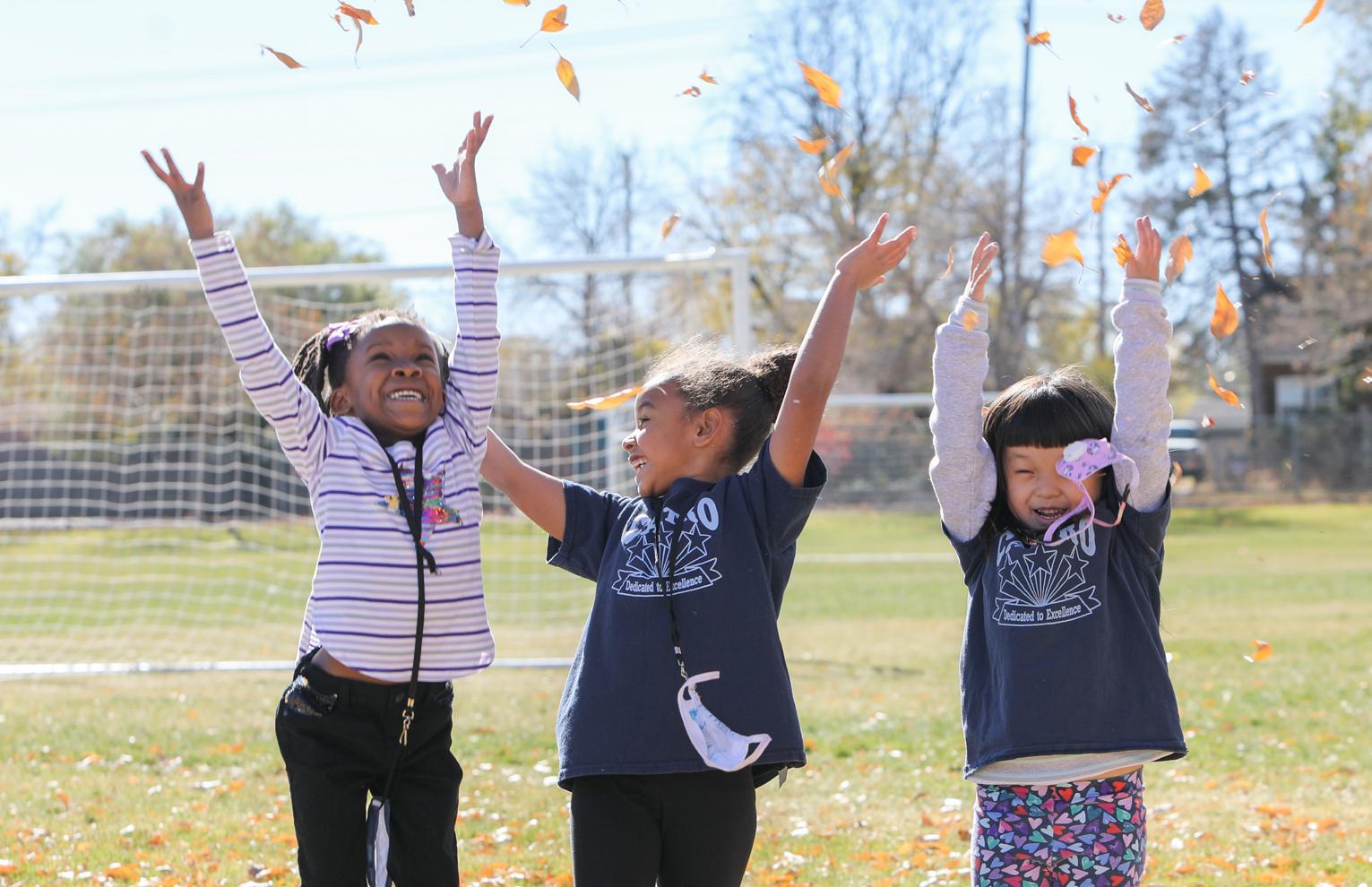
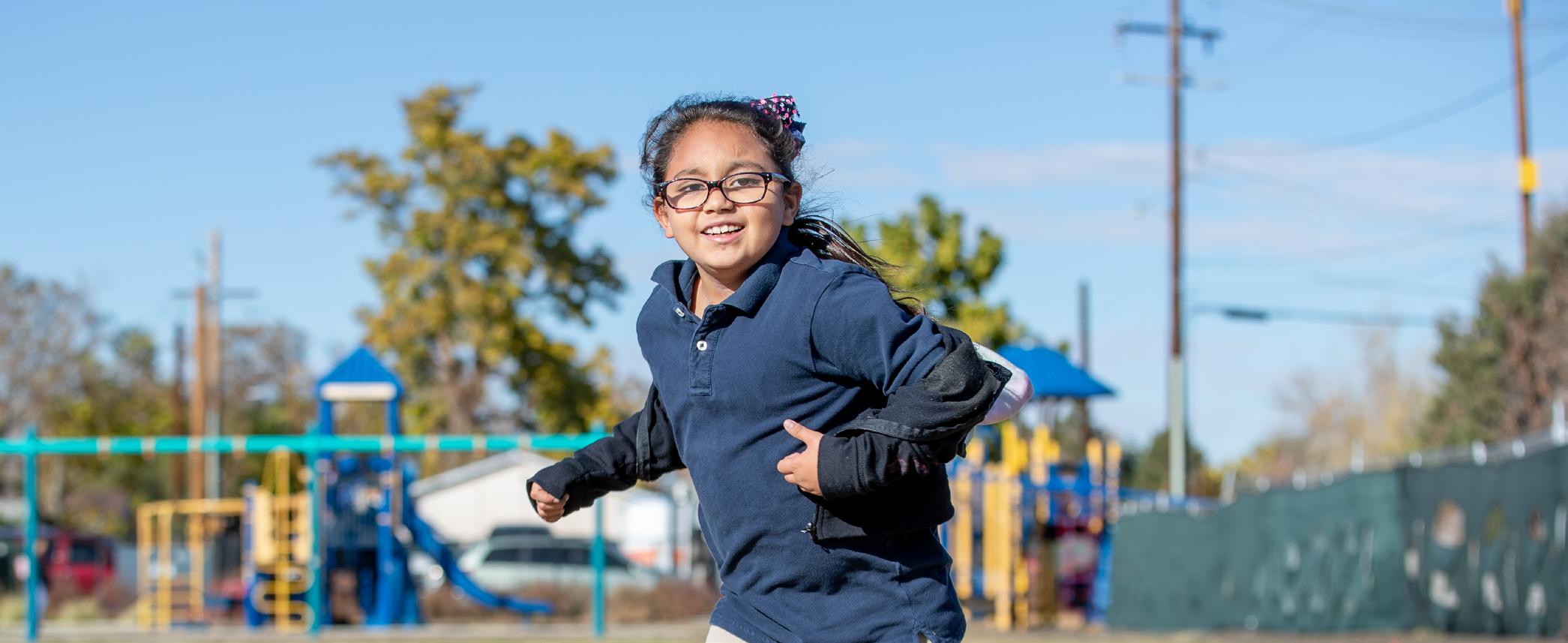

12,250 pounds of garden-grown produce donated
10,182 MWh of solar produced
2,000+ students started their own garden seedlings
900 teachers and students engaged at speaking events
700 Instagram followers
163 sites with recycle service
120 school gardens
82 tons of scrap metal recycled
55 schools with compost service
29 Garden of Youth interns in summer 2022
7 Sustainability Team staff
4 solar shade and canopy contracts
2 lunch-n-learns hosted on sustainable design
1 Climate Action Policy adopted by the Board of Education



The Sustainability Team made a positive financial impact to DPS of $15.8M through cost avoidance, revenue, and outside funding.
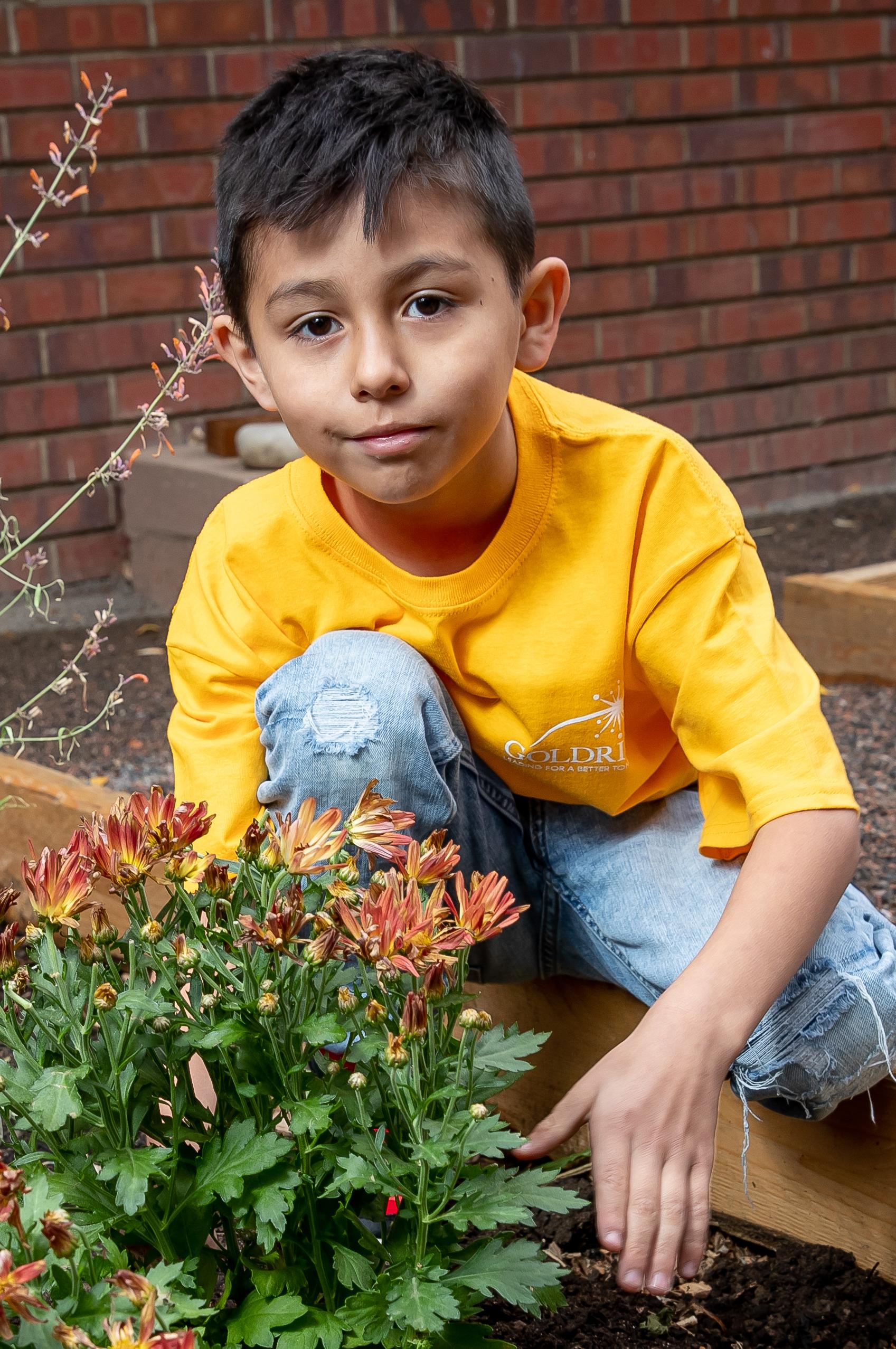

The Sustainability Team manages the utilities for DPS’ 200+ buildings and identifies opportunities for reducing resource use. In FY22 utility expenditures totaled $21.5M. This is a 17% increase from the three-year-pre-pandemic average of FY17-19. The majority of this difference is due to the increase in natural
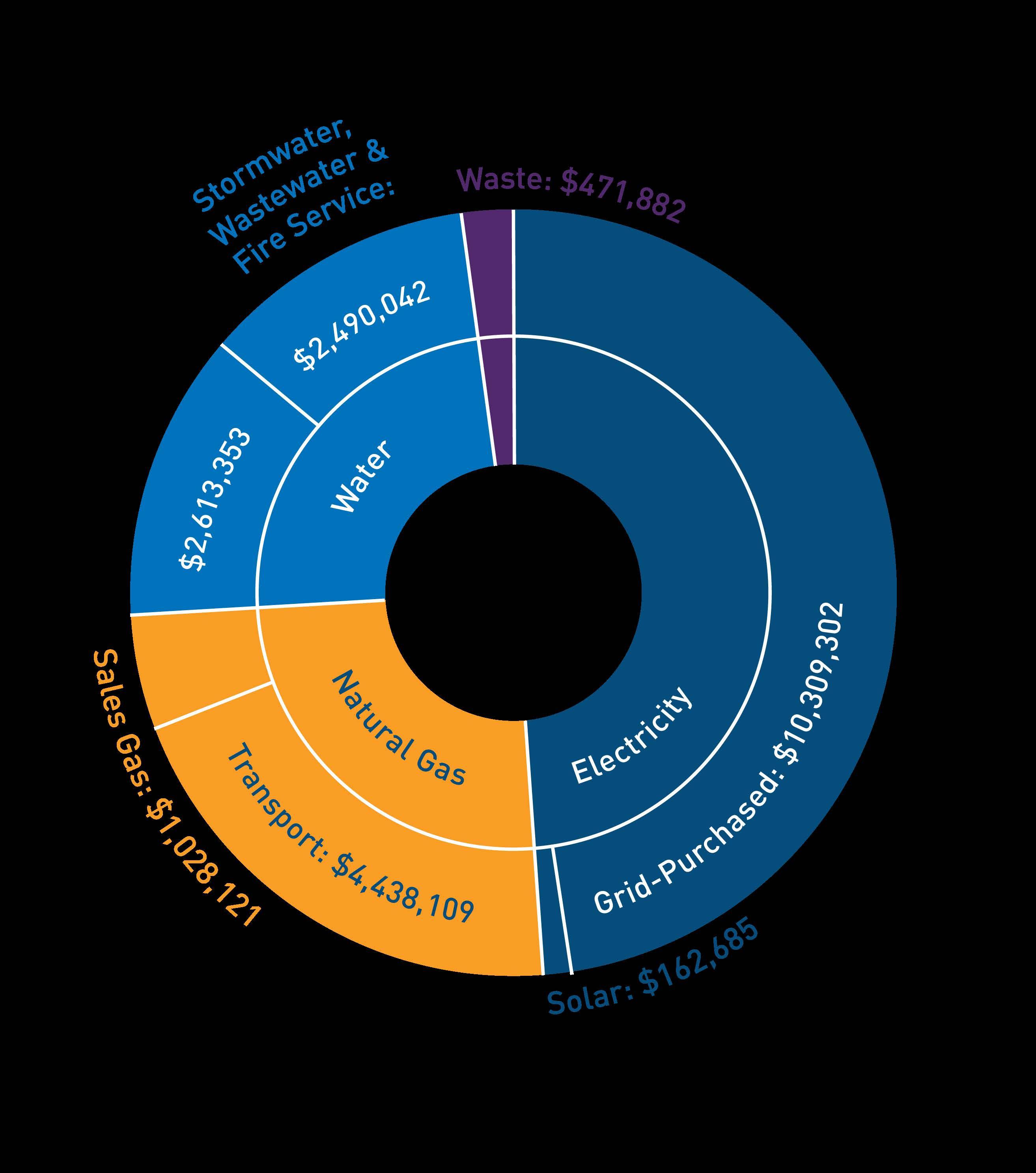


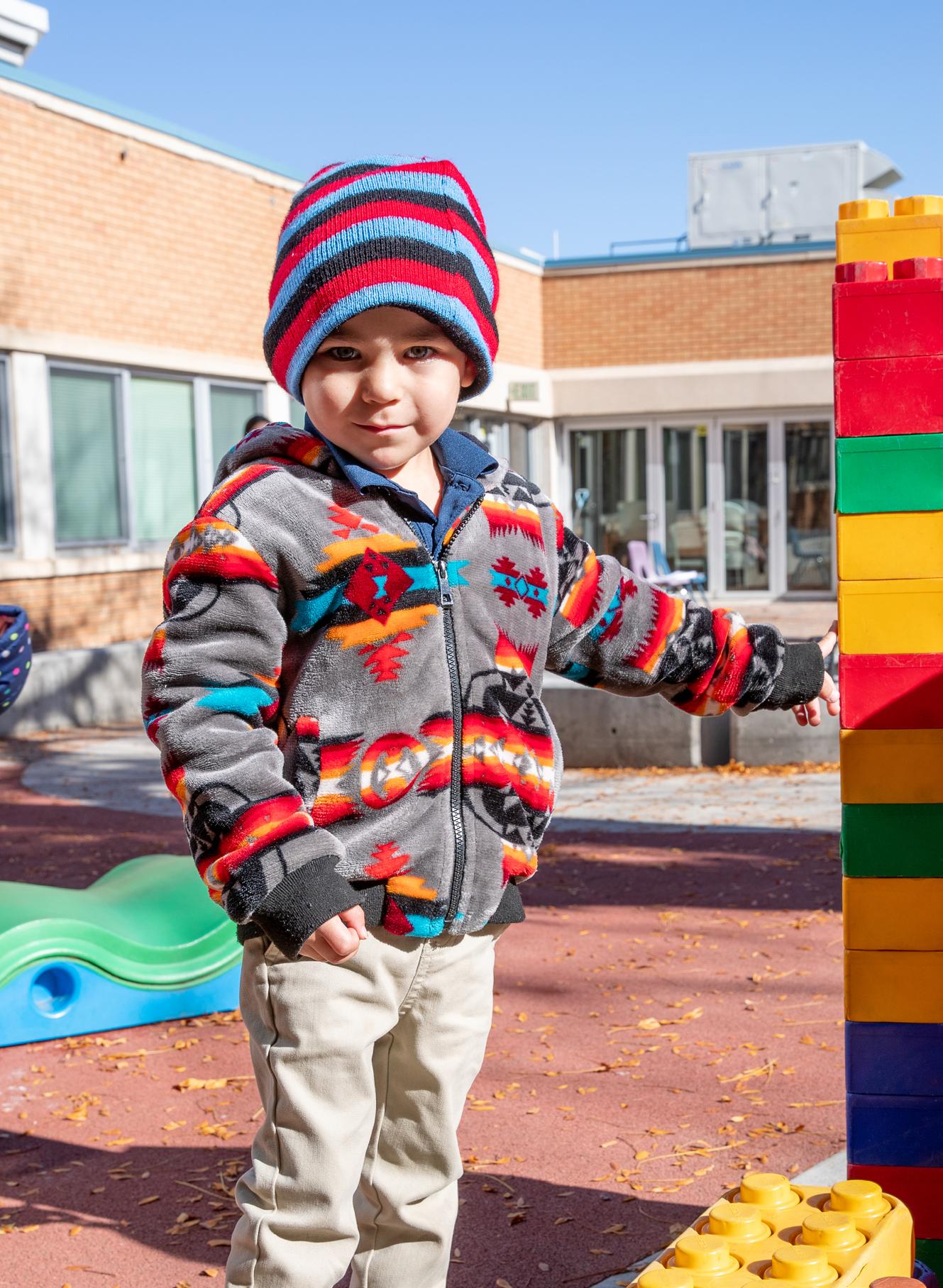

Note: Data sourced from the Sustainability Team’s Energy Manager software upon receipt and input of utility bills; slight discrepancies may exist from DPS’ financial system which reflects timing differences between bills received and bills processed and paid.
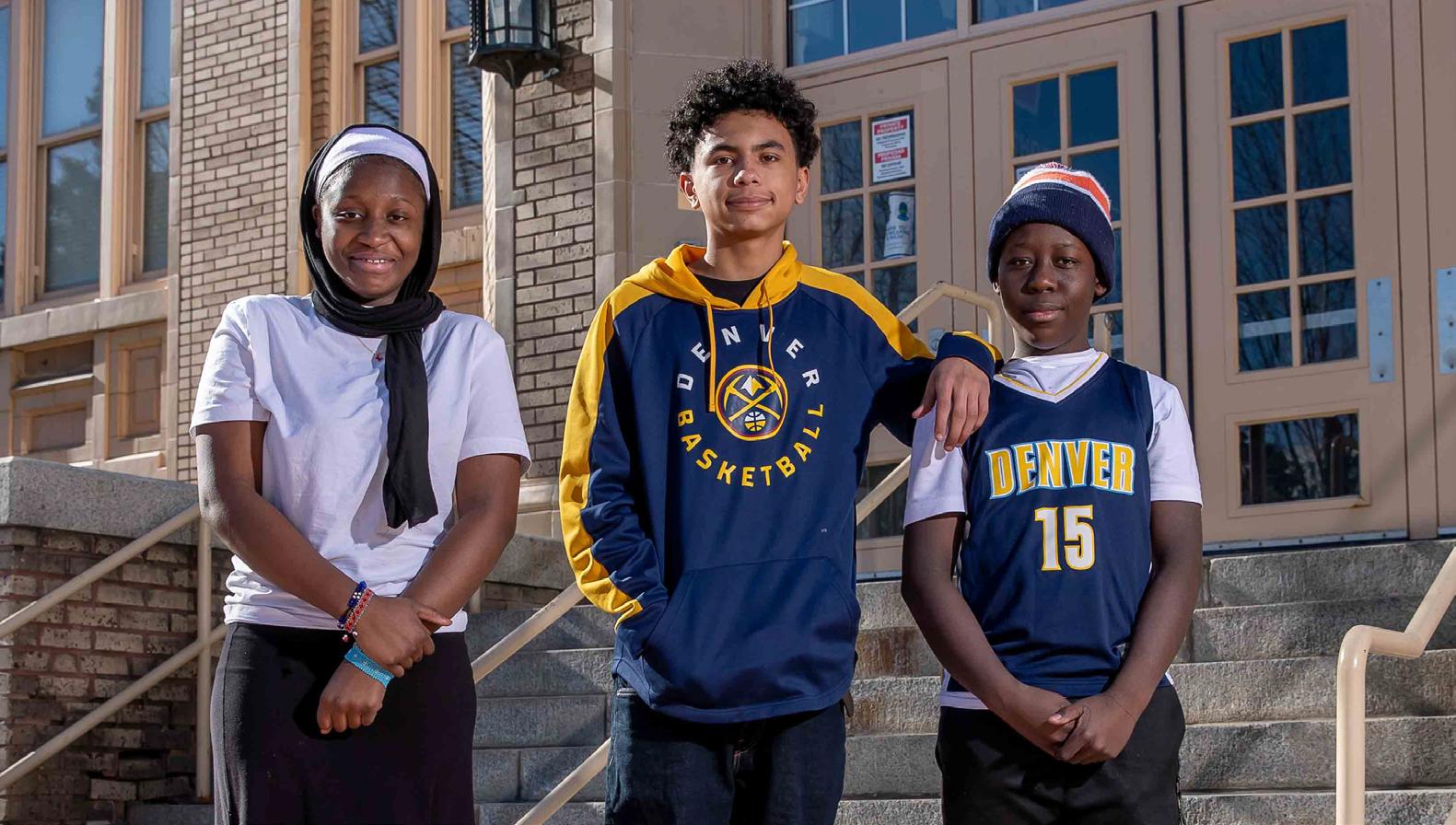
In FY22 onsite solar provided 10.6% of the district’s electricity needs, but it accounted for only 1.6% of the district’s electricity costs.
FY22
In FY22, DPS purchased 80% of its natural gas from transport gas and 20% from sales gas.
Sales Natural Gas vs. Transport Natural Gas (DTherms)
FY22’s electricity use decreased 11% from an average of FY17-19, and natural gas use decreased 2% . However, water use increased 14% from the same baseline.
We chose to compare FY22 to a three-year average that does not include fiscal years where operations were impacted by the COVID pandemic response.
The Sustainability Team utilizes financial incentives from partner agencies for taking sustainable actions like installing efficient equipment. In FY22 the Sustainability Team received $367,619 in revenue.
• Half of the revenue came from the sale of Renewable Energy Certificates (RECs) from a few of the solar arrays that DPS owns, and the other half came from rebates for efficient equipment.
• 72% of the revenue came from Energy Performance Contracting projects and 28% from other programs.
FY22 Sustainability Revenue: RECs and Rebates

$367,619

Ends Statement 1.6
DPS Students for Climate Action worked for over a year urging the DPS Board of Education (BOE) to create climate goals that align with those of the City & County of Denver and the State of Colorado. The BOE unanimously passed the student-driven policy the day before Earth Day 2022! The Ends Statement 1.6 reads:
DPS shall be a national leader in establishing an organizational culture anchored in sustainability, climate action, and environmental justice in both the conservation of natural resources and in minimizing the carbon footprint of DPS’ practices.
This policy is one of only six district-wide policies and lays a strong foundation for climate action moving forward.
DPS Students for Climate Action and LeeAnn Kittle meeting in March.
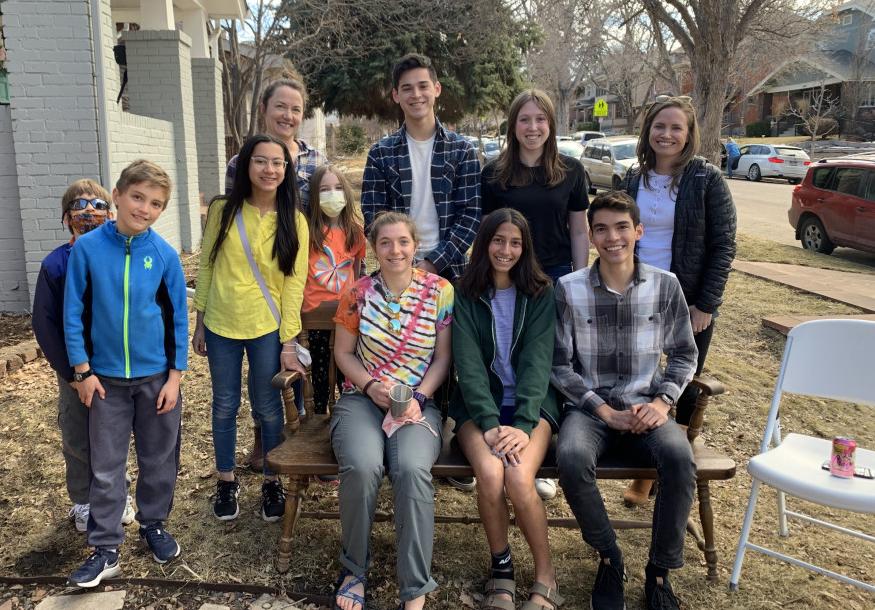


In response to the climate action policy passing, the Sustainability Team hired Lotus Engineering & Sustainability to develop a Climate Action Plan for DPS. This plan will identify areas across the district where DPS will reduce its carbon footprint and take innovative approaches toward climate action.
The plan is being developed with an internal task force of department leads representing DPS programs that have a large impact on greenhouse gas emissions and stakeholder groups of DPS and community sustainability experts. The Team has presented to DPS senior leadership for consultation and will continue to engage them throughout the plan’s development.
This FY the team developed 2050 goals, frameworks, and focus areas for the Climate Action Plan, and we will continue to develop interim five-year goals, strategies, and tactics with stakeholder guidance.
The Sustainability Team surveyed the DPS community to understand what being a “national leader” in sustainability, climate action, and environmental justice means to them and what issues and actions are most valued. The survey was provided to students, staff, and parents in four languages. Survey responses are still coming in, and results will be shared in the next annual report.
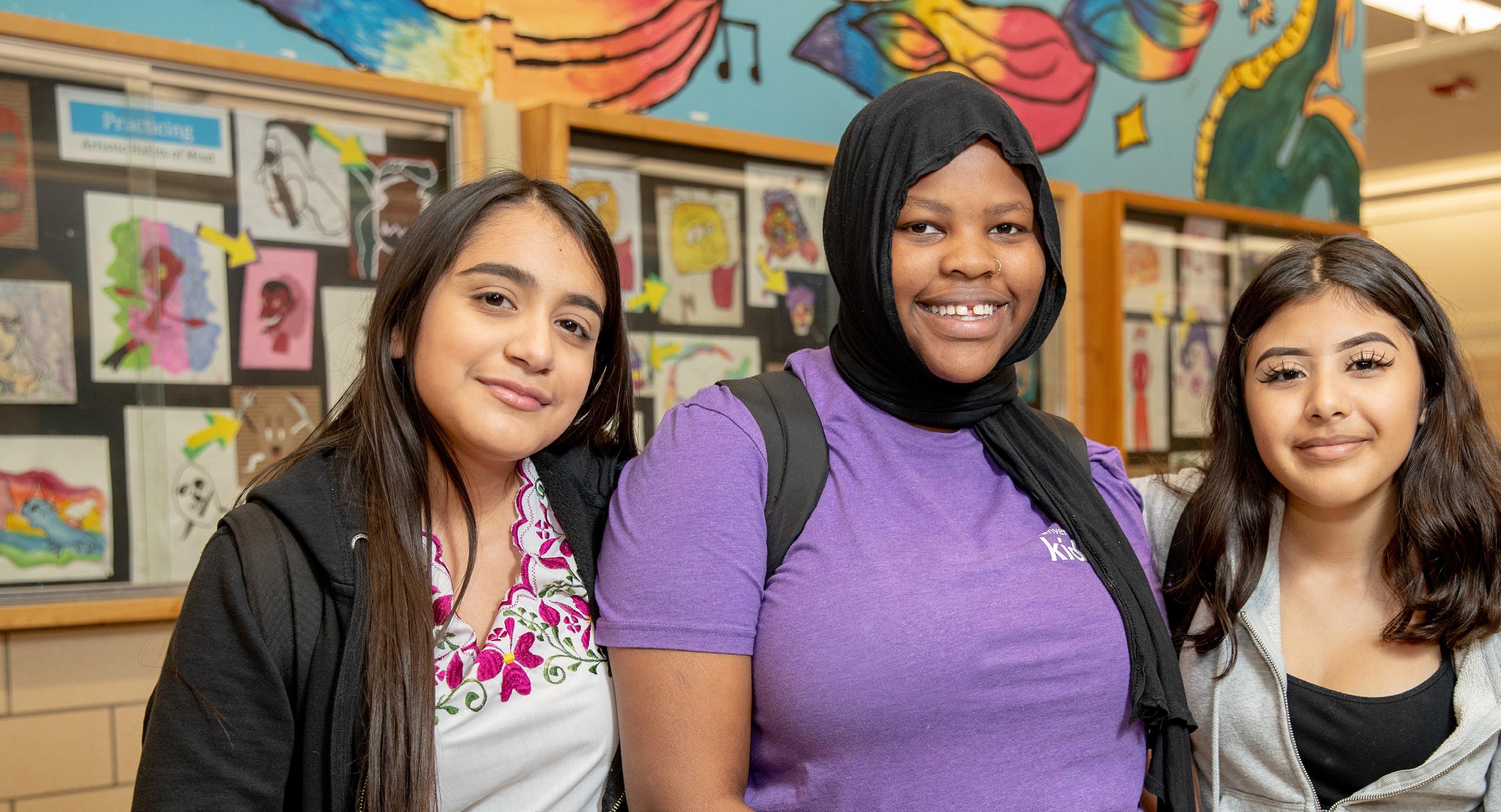
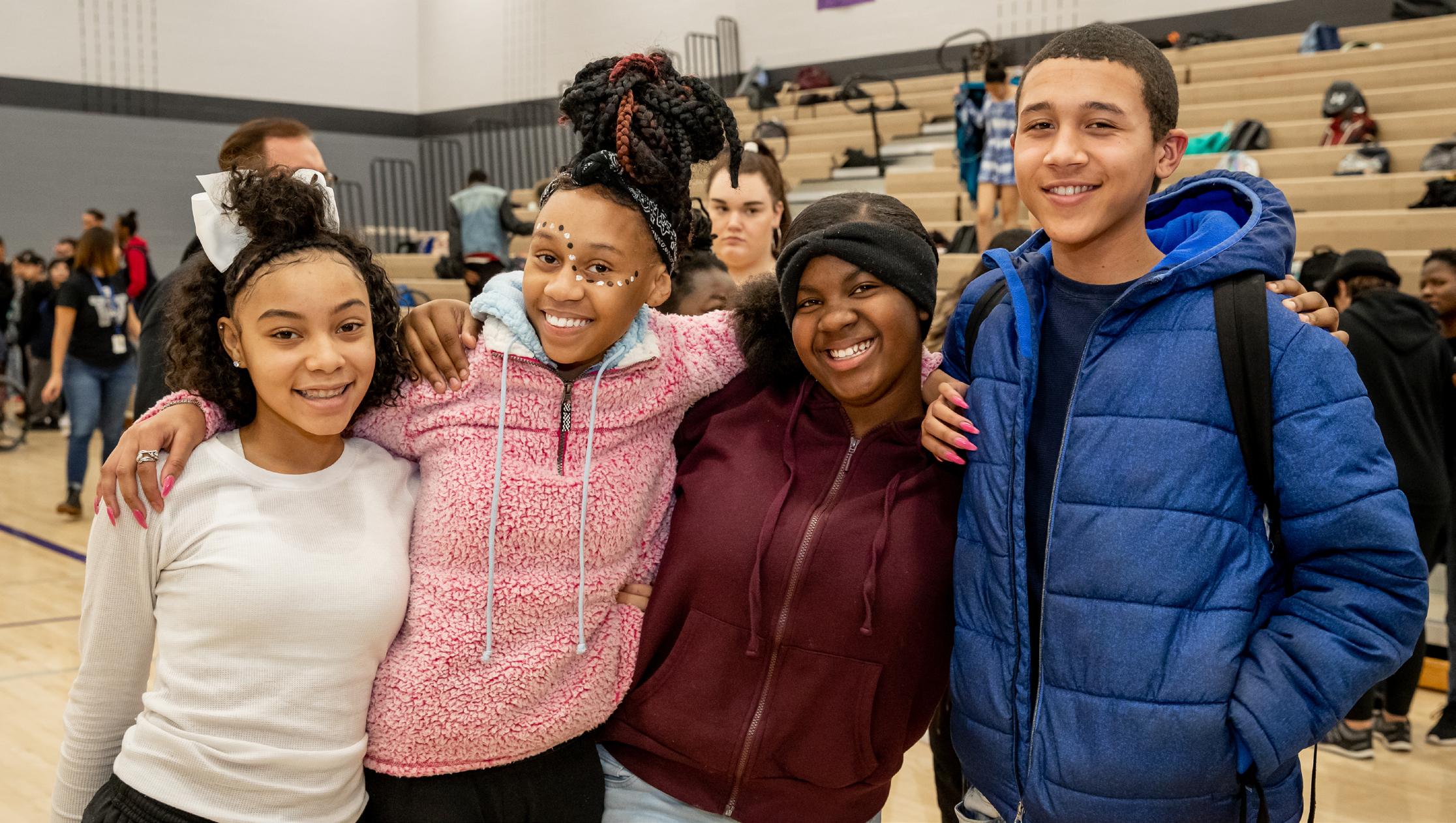
The Sustainability Team hired Group14 Engineering to evaluate the financial impact of achieving the energy and greenhouse gas emissions goals proposed by DPS Students for Climate Action, which are:
• Use 100% clean electricity by 2030 in accordance with Denver’s 100% Renewable Electricity Action Plan.
• Reduce overall greenhouse gas emissions by at least 90% of the levels of district-wide greenhouse gas emissions that existed in 2010 by 2050, in line with Colorado’s HB19-1261 Climate Action Plan.*
This financial impact assessment will be used to:
• guide the prioritization of building electrification efforts as we continue to plan for capital needs,
• guide the five-year goal setting in the Climate Action Plan, and
• inform stakeholders on how to work toward the goals from an economic standpoint in potential future bond cycles.
The financial impact assessment had four scopes of work:
• 2020 Bond Electrification Evaluation
• 2024 Capital Planning Electrification and Energy Evaluation
• Renewable Energy Assessment
• Portfolio Level Analysis
*Note: DPS is using a 2010 baseline to ensure accurate data, whereas the state uses a 2005 baseline.
The Sustainability Team worked with internal and external partners to promote sustainable building design and make progress toward healthy, lowcarbon buildings.

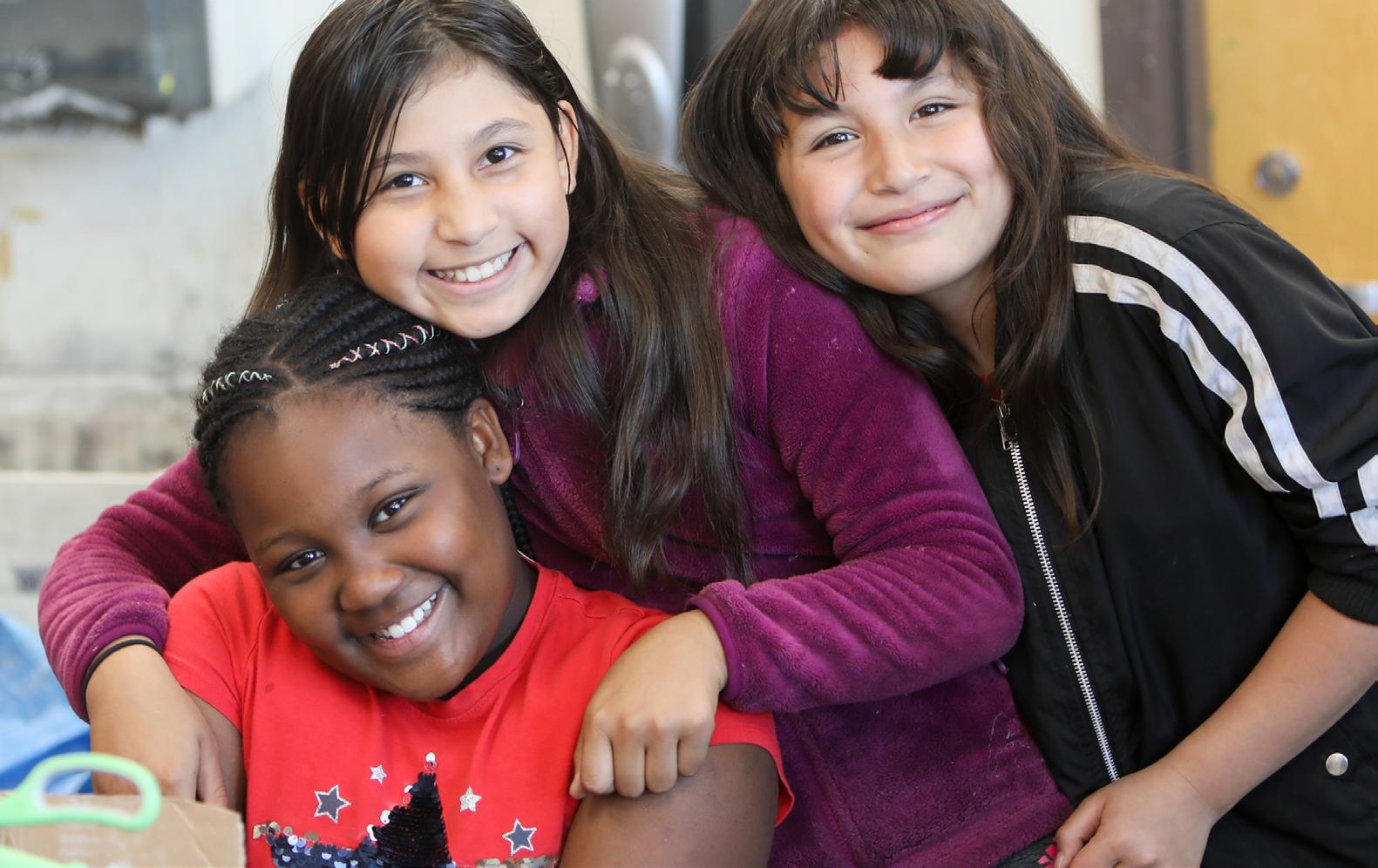
• The Team assisted in the hiring of a design firm to help write a solar PV design standard for all future solar projects.
• The Team hired an engineering consultant to identify economically feasible building electrification options. This informed a memo to DPS project managers and design firms asking them to evaluate electrification options in their design process.
• The Team hosted two lunch-n-learns for Planning, Design, & Construction and Facility Management staff on electrification of heating systems and net-zero, all-electric buildings.
• The Team helped develop Sustainable Design Guiding Principles through the DPS Sustainable Design Stakeholder Group. The principles were approved in the fall of 2021, and they have already influenced the design of two new buildings. The principles are:
Ensure the safety, health, and wellness of our students.
Protect and restore the natural environment. Work with nature, not against it.
Ensure our spaces are designed for, and with, the communities and cultures we serve. Construct environments that are highly functional, adaptable, and stand the test of time.
Invite curiosity and promote learning from the built environment itself.
Be good stewards of public funds, considering value and life-cycle costs.
Provide connections to nature and learn from its wisdom.
Direct Digital Controls (DDC) is a building automation technology that improves occupant comfort and safety, increases energy management capabilities, and allows for issues to be addressed in a centralized and digital manner. DDC replaces outdated and aging pneumatic controls.
• Sustainability and the Planning, Design & Construction teams received $2M from the 2016 Bond Reserve to upgrade 5 schools to DDC.
• DPS received $10.2M from the Elementary and Secondary School Emergency Relief (ESSER) Fund to upgrade mechanical and controls systems to DDC to increase ventilation due to COVD-19.
• DPS uses two platforms - Clockworks and Reveal - for Fault Detection and Diagnostics (FDD) to both mitigate comfort issues and save energy.
Through Clockworks, we saved $47,298 in avoided costs at 11 schools.
Through Reveal, we saved $770,169 through the completed work in the energy performance contract with McKinstry, which encompasses 27 schools.
Xcel Energy administers the Critical Peak Pricing Program, which is a demand management program where sites pay reduced electricity demand charges throughout the year but pay higher electricity use rates during designated critical peak events. Critical peak events typically occur on hot summer days when electricity demand is high due to air conditioning.
DPS had eight buildings enrolled in the Critical Peak Pricing Program and saved $53,645.
Going forward, we plan to increase facility engagement around demand management at these sites so we can better respond to the peak events and realize more savings while maintaining occupant comfort.
Xcel Energy’s Strategic Energy Management (SEM) program offers a holistic approach to managing energy use for persistent savings and performance improvement. Through an MOU, Xcel and DPS have committed to building a culture of energy efficiency through capital measure identification, custom rebate support, energy modeling, retro-commissioning support, and energy management policy.
This is the second year DPS has had 12 buildings participate in SEM, and this year we recognized an additional $12,800 and 255,600 kWh of operational savings. Including the first year, this is a total of $37,300 and 1.5 GWh of operational savings.
It is important to note that SEM captures savings from all operational and behavioral improvements at participating buildings, which may also benefit from Fault Detection and Diagnostics (FDD). Any savings from FDD programs at these buildings are captured by SEM, so the savings are not additive.
The Sustainability Team was awarded $305,626 from the City and County of Denver’s Solar Outdoor Learning Incentive Program to install solar shade structures at:
• Thomas Jefferson High School,
• Polaris at Ebert Elementary School, and
• Manual High School.
Unlike a traditional rooftop solar structure, these solar panels will be visible from below. Therefore the solar shades will provide not only clean energy but also educational opportunities and an engaging outdoor learning environment. The Sustainability Team will also integrate solar curriculum with the solar shades in collaboration with the DPS STEAM team.
School enrollment has increased 10% over the last 10 years, while energy use has decreased 8% over the same period.
DPS has contracted with the City and County of Denver to install an estimated $1.5M solar canopy project at Northeast Early College in summer 2023. This solar array is one of many that the city is implementing to help share the benefits of solar with the community.
Low-income DPS families will receive solar credits from all 11 projects in Denver’s community solar portfolio, helping to reduce their residential electricity costs. DPS’ Family and Community Engagement (FACE) team collaborated with Energy Outreach Colorado to develop the application process and are focusing on families most in need.
The Garden of Youth (GOY) program entered its 11th year in summer 2022 and continues “growing people and plants”. GOY is a job skill development program for youth ages 16-21 with Individualized Education Plans. GOY Interns work in small groups with a job coach for 10 weeks to learn soft job skills that will be applicable for any future employment, while growing organic produce at 8 school garden sites and selling the produce at local farmers markets.
The GOY program had 32 interns in summer 2021 and 29 interns in summer 2022. Interns grew about 360 pounds of produce. In summer 2022, the interns made about $1,300 selling produce, infused water, and seed balls at the markets.



Summer 2022 interns also:
• had a sensory plant experience with a horticultural therapist at the Denver Botanic Gardens,
• rebuilt the garden at Thomas Jefferson High School,
• practiced stewardship in their communities and the Urban Farm, and
• helped our own DPS Farmer James plant cucumbers for our cafeterias.
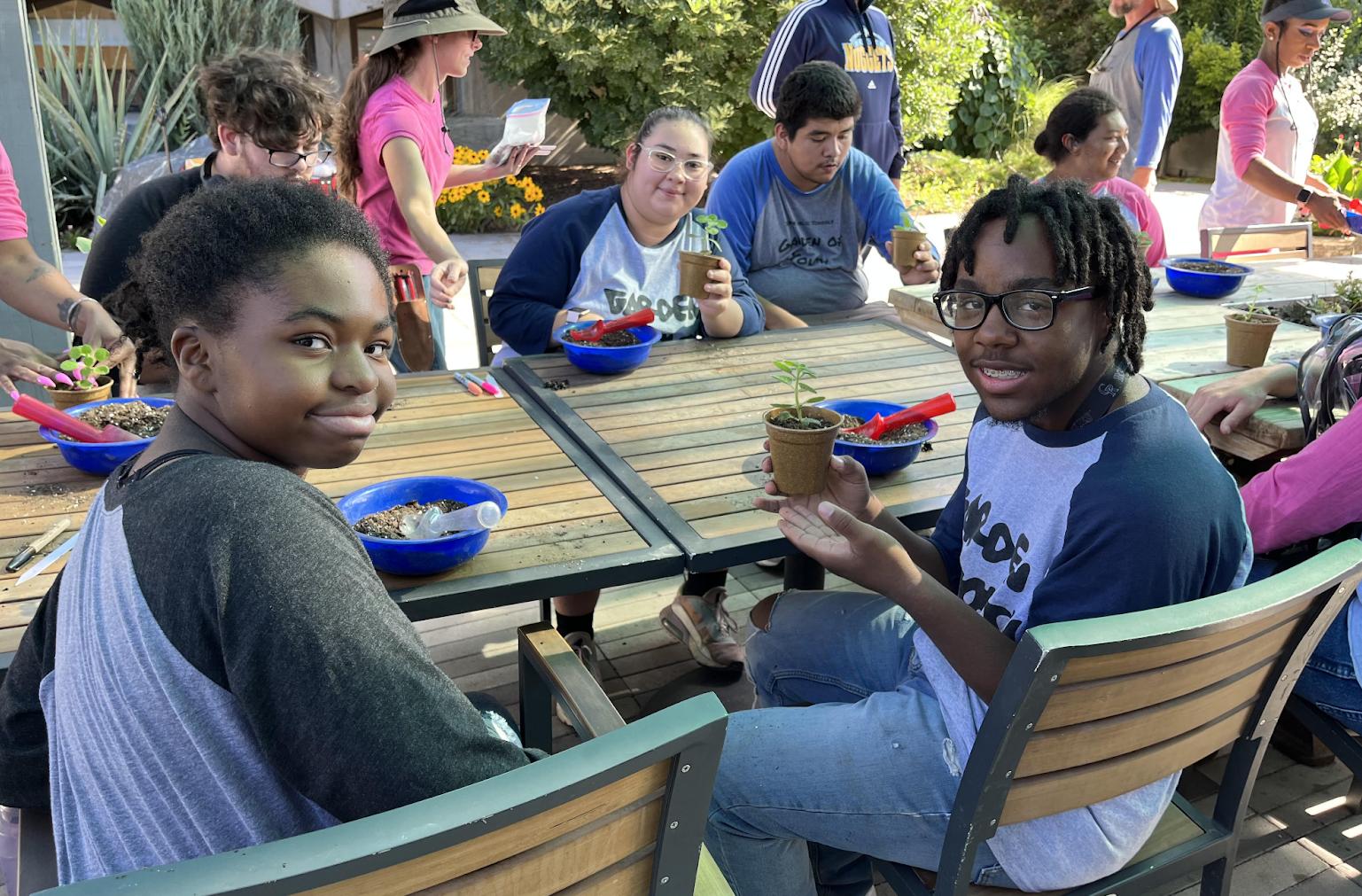
The garden program’s work with community partners enables us to have far greater engagement and impact in our community.
Maintains 37 shared school and community gardens which preserves 5.3 acres of land. In FY22 they produced 94,000 pounds of food for Denver gardeners.
Manages 30 gardens, and in FY22 donated 572 pounds of produce to Bienvenidos Food Bank.
Manages 2 gardens, and in FY22 donated 345 pounds of produce to:
• Giving Grocery
Grow Local Colorado
• SAME Cafe
• South High School staff and students
• Craig Hospital patients and families
• GOY
Manages the Denver Green School (DGS) Community Farm, and in FY22 grew 11,100 pounds of food for education programs, donation-based farm stands, school cafeteria, school food pantry, and the Community Supported Agriculture program.
The Division of Vocational Rehabilitation Denver Urban Gardens SustainEd Farms Sprout City Farms Slow Food Colorado Provides nutrition education Lincoln Hills CaresVolunteersbuiltnewgardenbedsandanoutdoorclassroomatEllisElementary.Thegardenswill beusedbyourpartnerInternationalRescueCommittee,whoprovideservicesandgrowingspacesforDenver’srefugeecommunities.
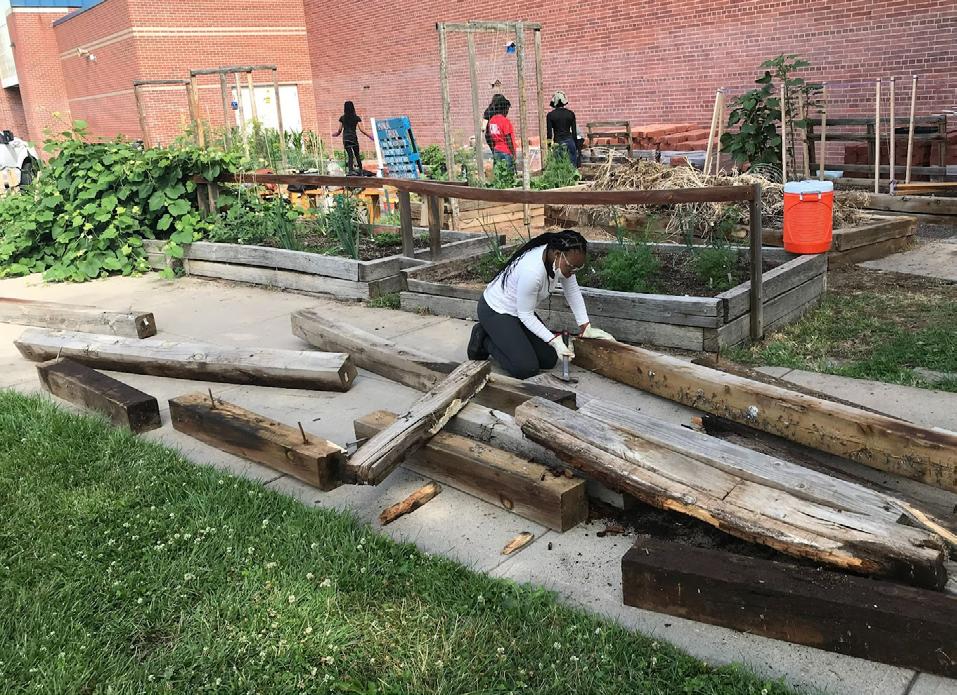
Additionally, the gardens program received four grants totalling $12,700. We were able to provide seed starting and garden supplies to over 37 schools and support more than 2,000 students in growing their own seedlings.
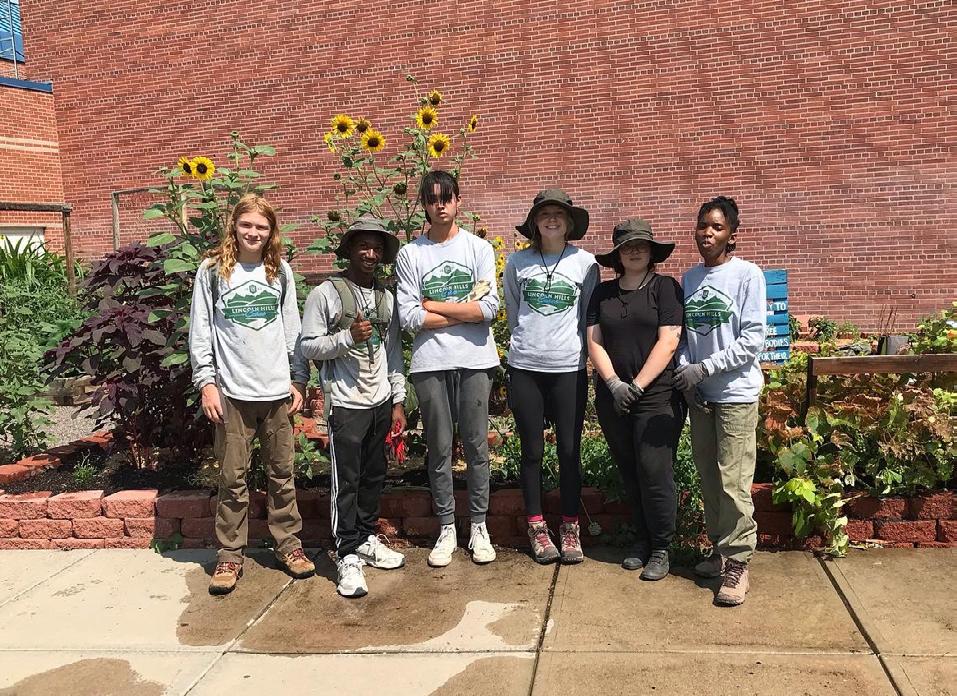
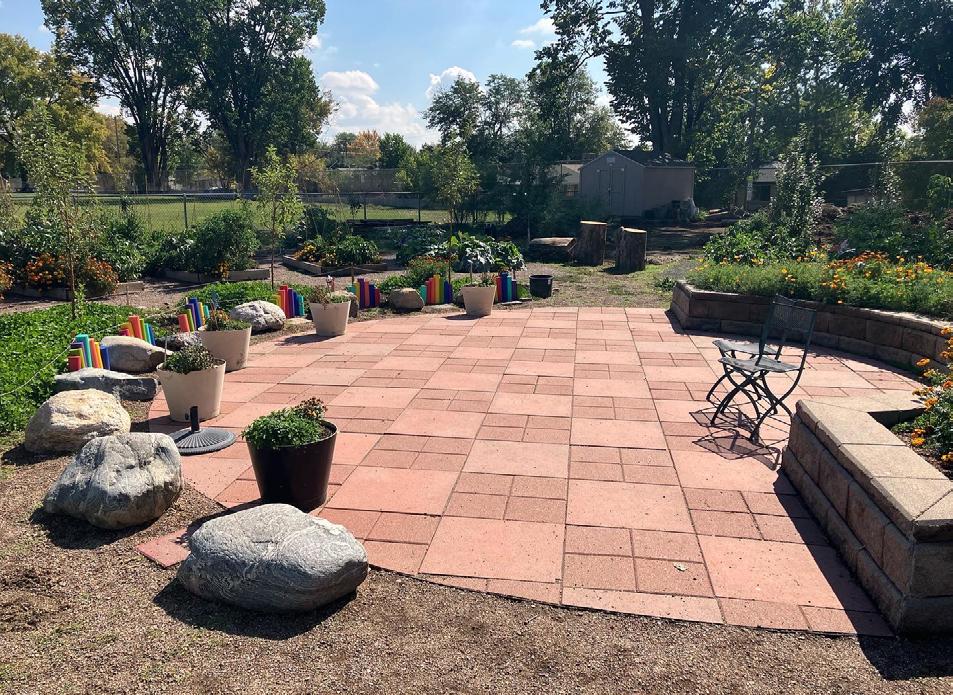
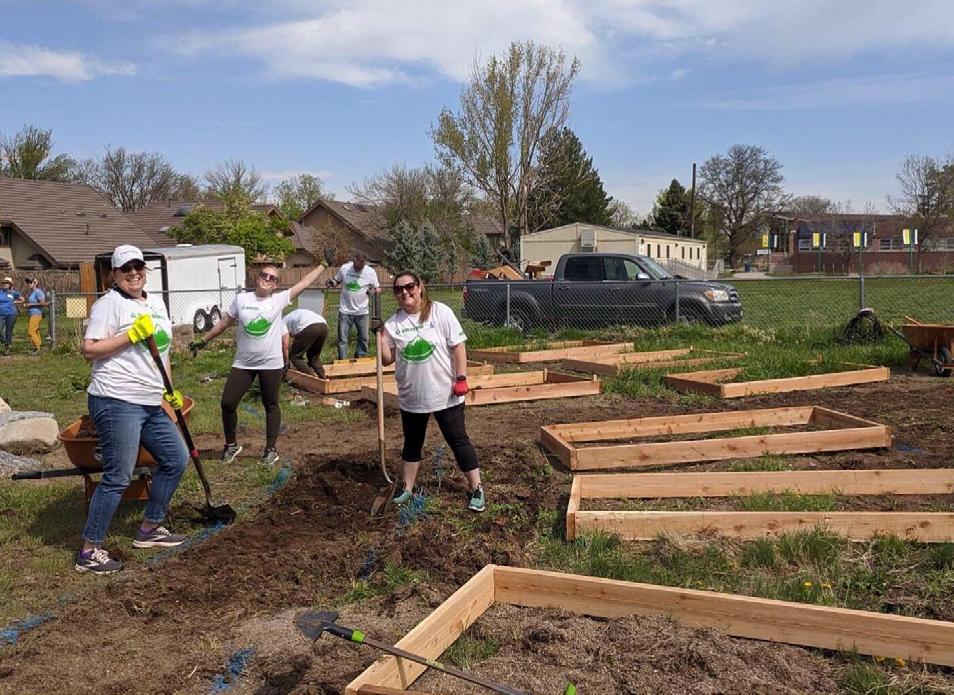 LincolnHillsCaresinternsremoveddecayingwoodengardenbedsatManualHighandreplaced themwithsturdywallblocks.
LincolnHillsCaresinternsremoveddecayingwoodengardenbedsatManualHighandreplaced themwithsturdywallblocks.
There are 163 DPS sites that receive recycling service and 55 sites that receive compost service. There is high student demand to increase compost services to more schools. Additionally, DPS staff recycled 82 tons of scrap metal.
DPS receives its recycle, compost, and trash data in volume-based metrics that assume full containers rather than actual weights of what was disposed of. This is a barrier to reporting accurate waste data and landfill diversion rate. The team hopes to improve this issue going forward.
In April 2022 staff partnered with SustainEd Farms, students, and teachers to perform a waste audit at Carson Elementary to better understand the composition of materials in the trash. The results showed about 65 pounds out of 87 pounds (or 75%) of trash audited were materials that could have been composted instead of landfilled, and most of that compostable material was food waste. We plan to host more waste audits to see if these audit results are indicative of other schools across the district.
This goes to show there is room for improvement in increasing the district’s landfill diversion rate, and we look forward to working with more schools to understand their waste composition and help them reduce, reuse, recycle, and compost.
The Sustainability Team was awarded $738,490 from a Regional Air Quality Council grant for two electric buses and one DC fast charger. This funding allows us to start working toward electrifying DPS’ fleet and see environmental, social, and economic benefits. Electric buses decrease tailpipe greenhouse gas emissions, improve the outdoor air quality and health of our students and community, and realize long-term savings in fuel, operations, and maintenance costs compared to diesel buses. Thank you to the DPS Transportation Team for their partnership on this exciting project!
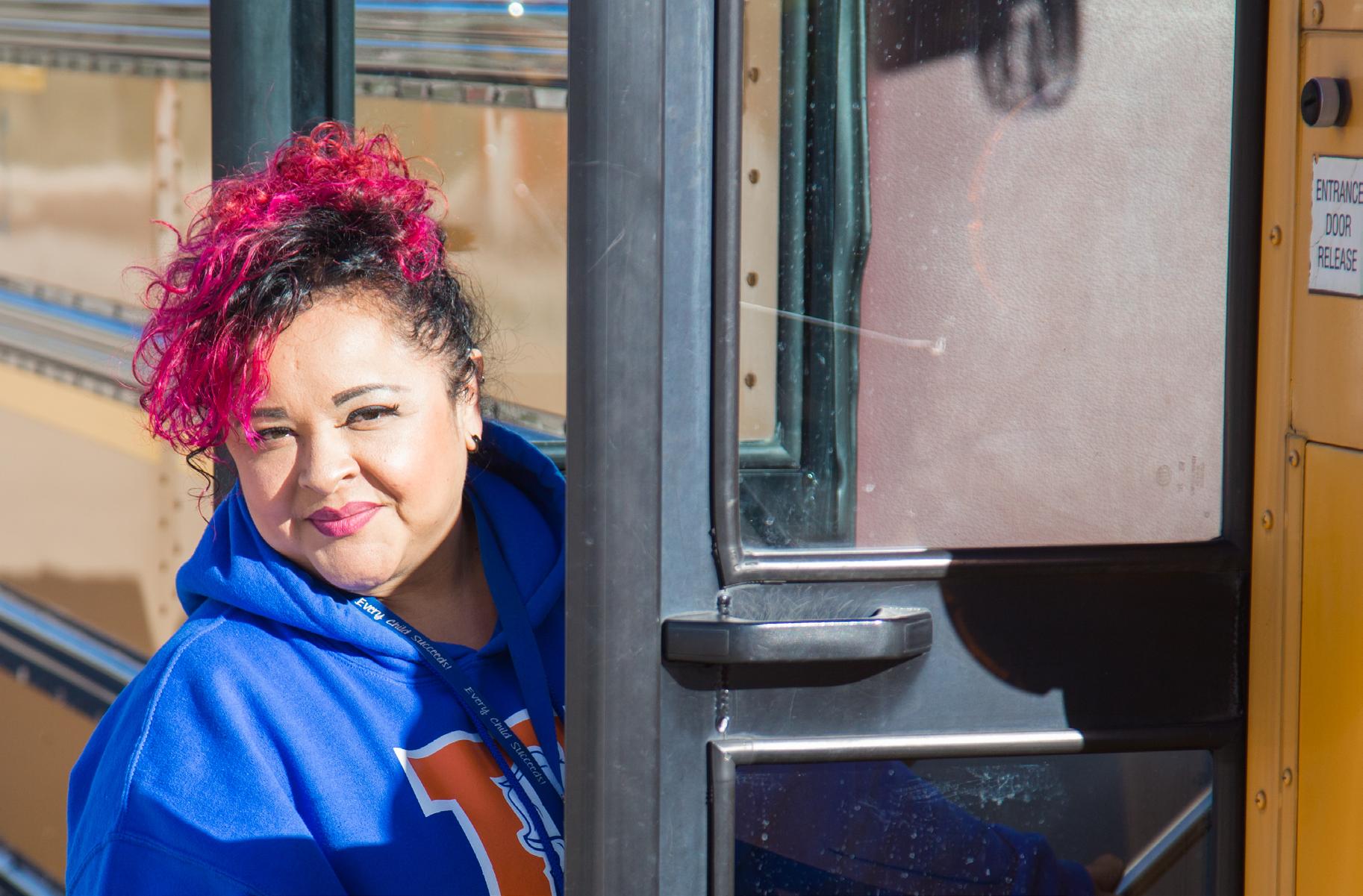
DPS is located in a dry environment and our potable water comes from the snowpack in the Rocky Mountains that is collected, treated, and distributed by Denver Water.
Recycled water is wastewater treated to a standard that is suitable for irrigation, and it is delivered to sites through a separate system of purple pipes. To reduce the demand on the potable water system, DPS uses recycled water to irrigate at 15 sites. This saved $255,744 in FY22.
The DPS Planning, Design, & Construction team has worked to convert many of our playfields to artificial turf since the mid-2000s. Each full-sized football field or soccer pitch with bluegrass needs 60,000 gallons of water per week during the irrigation season to remain healthy, which equates to 1.5 million gallons per season.
Montbello High School’s play field was converted to artificial turf in 2005, and over 18 seasons this has saved about 27M gallons of potable water, or about 41 Olympic-sized pools. Other benefits of artificial turf include consistent playability, increased safety, no fertilizer and herbicide use, and no fuel for mowing.
DPS entered into the largest Energy Performance Contract (EPC) in Colorado’s history at the time in FY20. This EPC will result in guaranteed savings of nearly $1.6M annually. In year one of the Measurement & Verification process, DPS is projected to exceed its original savings goals.
• Electric savings is projected to be 11,545,136 kWh annually, which is approximately equivalent to 1,592 houses’ electricity use for one year.
• Natural gas savings is projected to be 161,456 Therms annually, which is approximately equivalent to 184 gasoline-powered vehicles driven for one year.
• Water savings is projected to be 18,012 kGal annually, which is approximately equivalent to 27 swimming pools.
The Sustainability Team’s past efforts in efficiency continue to yield yearover-year financial and environmental benefits. For example, the districtwide retrofit of T8 fluorescent lights with LEDs was completed in FY21 and yields $1.5M and 14,345,000 kWh per year in savings, as verified by Xcel Energy. This is equivalent to the annual electricity consumption of about 1,500 Colorado homes.
The Sustainability Team also works on projects not mentioned in this report. See below for what a day in the life of a Sustainability Team member could involve.
The Sustainability Team added a new position to collect, analyze, and communicate the team’s data to decision-makers and the community. Lindsay Weber, the new Senior Data Analyst, has worked in public-sector sustainability for 15 years and has a masters degree in Environmental Studies and a graduate certificate in Marketing Communication. She is passionate about translating complex data into engaging communications that promote meaningful change.
Let’s stay connected! Follow us on Instagram at @dps_sustainability and @dpsgardens
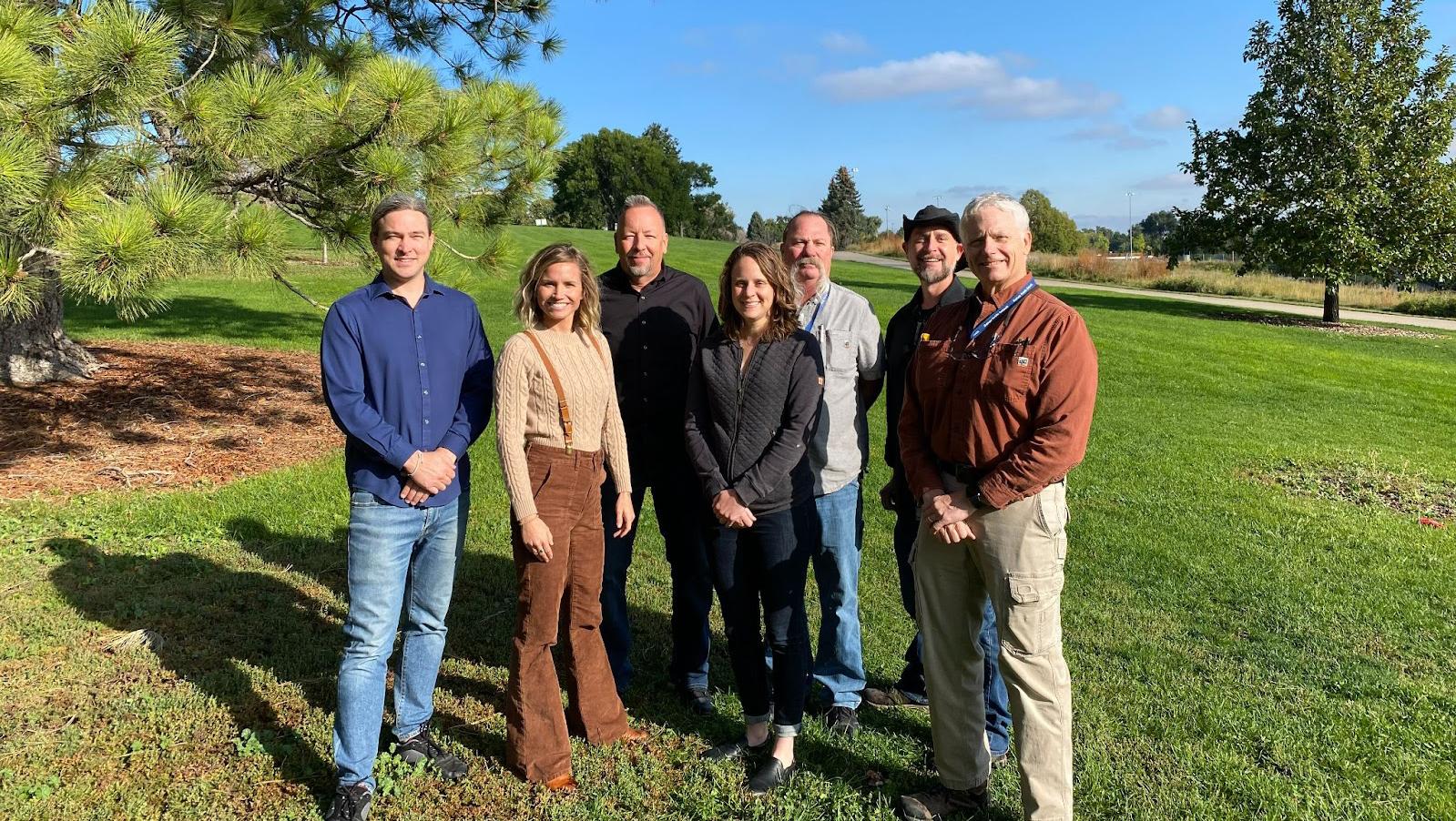 TheDPSSustainabilityTeamfromlefttoright:AdamWest,LeeAnnKittle,DarelLeedy, LindsayWeber,RogerDoris,ChrisWoodburn,andBrianSlota.
TheDPSSustainabilityTeamfromlefttoright:AdamWest,LeeAnnKittle,DarelLeedy, LindsayWeber,RogerDoris,ChrisWoodburn,andBrianSlota.
I really want to ensure a livable future for me and my generation.
AmeliaFernándezRodríguez
DPS Students for Climate Action
The best time to plant a tree was twenty years ago. The second best time to plant a tree is today.
Chinese Proverb
